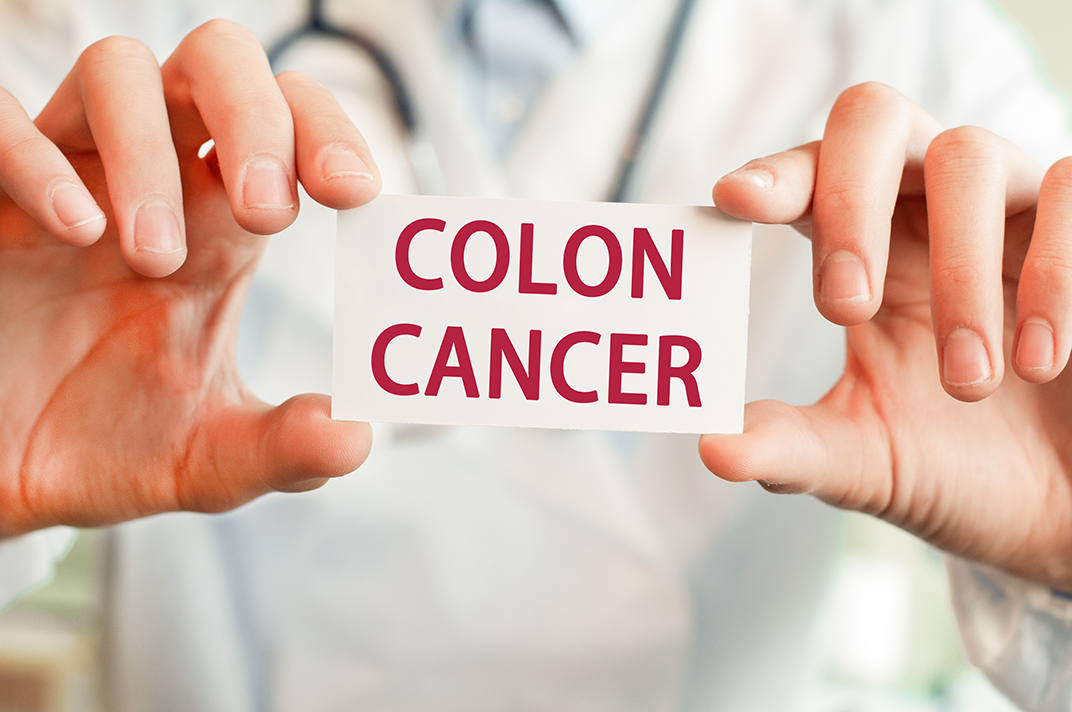
Cancer of the colon and rectum is an important topic to discuss. This issue is actually the second leading cause of cancer deaths overall. Over 50,000 people die of it yearly. So, while the topic might make some people uncomfortable, not taking action to prevent it could have dire consequences. That prevention has two parts - addressing risk factors and getting screened.
Risk Factors
There have been a number of risk factors identified that increase your chance of getting colon cancer. Fortunately, addressing most of these risk factors involves doing things that are pretty “common sense” - though they may be challenging. Being more physically active, maintaining a healthy weight, and eating a diet high in vegetables and fiber can all lower the risk not only of colon cancer but other conditions like diabetes and high blood pressure.
Limiting or eliminating alcohol has shown benefits as has quitting smoking. Studies are split on the benefits of vitamins and supplements, and although aspirin and similar medications may help reduce the risk of colorectal cancer, taking them can significantly increase the risk for other issues such as gastrointestinal bleeding.
The bottom line is that before taking any pills to possibly lower your risk, you should check with your primary care provider. You should also check with a doctor before starting any sort of strenuous exercise program, but eating a healthy diet and starting moderate activity is something that all physicians support for all patients. Just let your doctor know if you develop any concerning symptoms while exercising.
Screening - Why
Colorectal cancer screening is critical to lowering your risk. In fact, for most people screening is very effective at preventing cancer from even developing in the first place. This is because this type of cancer develops from a “pre-cancerous” polyp which can be seen and removed with screening. Once removed, the polyp is literally gone and can’t develop into anything. Working on the prevention of colon cancer has been one of the best things medicine has done in the last few decades.
Screening - How
There are several strategies for screening for colon cancer. Here, we’ll discuss the two which are most commonly employed currently. Colonoscopy is one very effective means of screening and is considered the “gold standard.” It requires a referral from your primary care provider. Getting the procedure done involves first drinking some fluid and/or taking some pills to fully clear out the colon at home. The patient then gets a ride to the gastroenterology office where the test has been scheduled. There, they get medication to relax them and prevent any pain. One side effect of the medication is that many patients, don’t even remember the actual procedure. The physician doing the test inserts a small camera and inflates the colon with air to look for any polyps. Any polyps which are found are removed. After fully “waking up” from the medication and passing that air out of the colon, the patient goes home. That’s all there is to it. The process is a bit unpleasant (especially the prep), but certainly is much preferable to getting cancer!
For those at low risk - meaning no family history or personal history of a polyp - there is another option but it does have some drawbacks. You may have seen a commercial for this other option, which is called Cologuard. Screening using this method involves collecting a stool sample and sending it in. The sample is checked for blood as well as DNA markers present in colon cancers and polyps. The two drawbacks to the test are that it is not as complete and accurate as a colonoscopy and that if the sample is positive, a colonoscopy is needed anyway. But, for those hesitant to do a colonoscopy and at low risk, it can be a good option to discuss with your doctor.
Screening - When
The “standard” age for screening for colon cancer was for many years age 50. Although rates of colorectal cancer have declined overall, the risk for people under 50 has been going up so recently the experts have started recommending screening starting at age 45. Importantly, if you have a family history of colon cancer or polyps, your doctor may well recommend earlier screening (generally 10 years younger than the age the person who had it was diagnosed). The bottom line here is that you should check with your primary care physician on when you should be screened and discuss with them your preferences on the method of screening.
Conclusion
Colorectal cancer is scary. Lowering your chance of getting it involves addressing risk factors including diet and exercise - stuff you know is good for you in many ways. Screening for it, while being a bit of a hassle, is really not a big deal. Talk to your doctor about the best screening strategy for you. By following these recommendations, you can significantly reduce your risk and set yourself up for a long and healthy life free of colorectal cancer.
